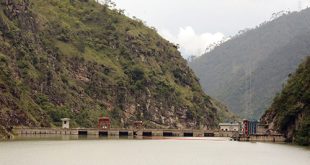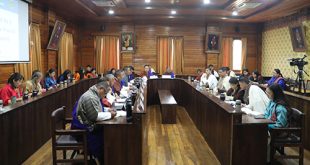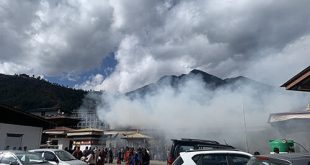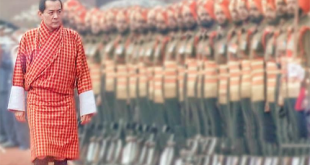Despite years of policy efforts and rural programs, farming in Bhutan continues to lose its young hands. Many youths still see agriculture as a path of hardship rather than opportunity. But Sonam Pelgen, the Senior Planning Officer of the Ministry of Agriculture and Livestock (MoAL) says this image is changing, not through short-term incentives, but through what it calls a “transformative modernization” of the entire rural economy.
Sonam said farming venture is now shifting from traditional support models toward deeper structural reforms that make farming profitable, technology-driven, and attractive as a long-term profession. The 13th Five-Year Plan places agriculture at the center of rural revitalization, with a mix of mechanization, entrepreneurship, digital systems, and risk protection measures.
One of the key moves is the large-scale push for farm mechanization. To reduce drudgery and make work more efficient, MoAL has distributed over 400 mini-tillers to farmers in six eastern dzongkhags, and continues to expand access to tractors, power tillers, and rice dehuskers. Beyond that, technology-based farming like hydroponics and automated greenhouses are being introduced to encourage tech-savvy youth to see agriculture as an enterprise, not manual labor.
MoAL’s “Chirup Commercial Farm” initiative represents another major change. These farms, run collectively by DeSuups and young farmers, are being developed as models for commercial agriculture. They serve as both learning centers and business incubators, where youth can gain hands-on experience in modern farming techniques, value addition, and entrepreneurship.
Infrastructure development also remains a central part of the plan. New irrigation schemes and chain link fencing are being constructed nationwide, 24 major irrigation projects will be implemented centrally under the 13th FYP, with many more taken up by local governments. Around Nu 5.1 billion worth of chain link fencing is also planned to protect farmlands from wildlife damage, one of the biggest deterrents to rural farming.
To make farming financially sustainable, MoAL has also institutionalized cost-sharing systems that allow farmers and youth groups to co-invest with the government in machinery, inputs, and infrastructure. This approach is designed to move farmers away from dependency and toward ownership and accountability.
At the same time, a new digital registration system for farmers and livestock farms is being rolled out. This database will track farm operations, livestock health, land ownership, and biosecurity conditions, making it easier for farmers to access credit, insurance, and targeted government support.
In response to labor shortages, MoAL has begun piloting the use of regulated foreign workers in agriculture and livestock farms, allowing local farmers to focus on higher-value, technology-based activities like agribusiness management and processing.
To further attract youth, MoAL is scaling up digital technologies including sensor-based irrigation, livestock traceability, precision feeding systems, and data-driven farm management. Sonam said such technologies are key to transforming agriculture into a “smart” and respected career field.
Another cornerstone of this effort is the upcoming National Crop and Livestock Insurance Scheme. With about 19 to 43 percent of crops lost annually to wildlife and climate-related disasters, the insurance program is expected to provide financial protection for farmers and build confidence in long-term investment. Regional consultations for its rollout are ongoing, with a formal launch planned for 11th November 2025.
MoAL said its overall goal is to move beyond temporary incentives and tackle the deeper issues that push rural youth away from farming, such as low profitability, lack of technology, and vulnerability to risks. By modernizing systems, securing livelihoods, and promoting entrepreneurship, it aims to redefine agriculture as a dignified and forward-looking career that can stand alongside any modern profession.
As Sonam put it, Bhutan’s next generation of farmers “should not just inherit land, they should inherit innovation, confidence, and opportunity.”
 The Bhutanese Leading the way.
The Bhutanese Leading the way.




